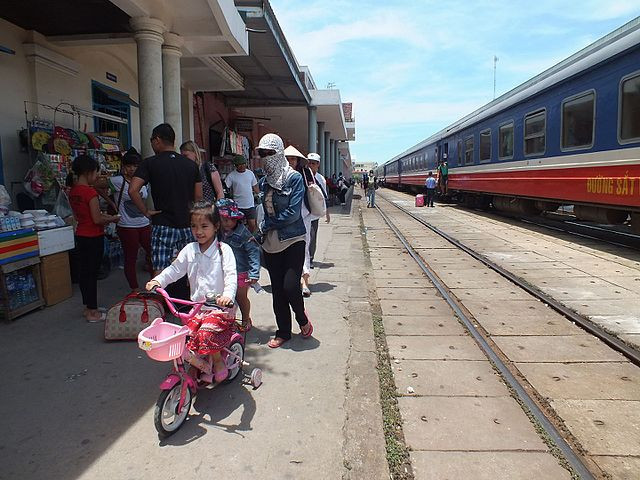Vietnam has officially approved a $67 billion high-speed railway project connecting the northern capital, Hanoi, to the southern business hub, Ho Chi Minh City. The ambitious plan is expected to revolutionize the country's infrastructure and economy, drastically reducing travel time along the 1,500-kilometer (930-mile) route from 30 hours to just five hours.
The National Assembly announced the decision on Saturday, marking a pivotal step in addressing Vietnam's long-standing transportation challenges. "The national assembly voted to approve... a resolution on investment policies for the high-speed railway project on the North-South axis," the assembly stated on its official website.
Vietnam's Deputy Minister of Planning and Investment, Tran Quoc Phuong, emphasized the project's significance, calling it "a breakthrough" in infrastructure. He added that it is "the wish of the people and the determination of the political system to have an international-standard high-speed railway." According to Phuong, the railway is projected to boost Vietnam's GDP by an average of 0.97 percentage points annually.
The railway will feature 23 passenger stations and five freight hubs, passing through 20 provinces and cities. State media reported that the train would transport both passengers and goods, offering a transformative solution for Vietnam's growing transportation demands. The project is slated to begin construction in 2027, with operations expected to commence by 2035.
Dan Martin, an international business advisor at Dezan Shira & Associates, highlighted the railway's potential to integrate Vietnam more deeply into global supply chains. "Making it easier for crucial components to reach manufacturing hubs and expediting the delivery of finished goods will boost production, reduce lead times, and solidify Vietnam's position as a critical player in global supply chains," Martin told AFP.
While optimism is high, Vietnam's track record with infrastructure projects has been marred by delays. Hanoi's second metro line opened this year after nearly a decade of setbacks, and Ho Chi Minh City's first metro line, initially scheduled for 2018, remains incomplete. Despite these challenges, experts are hopeful that lessons learned will ensure timely progress for this project.
The approval comes at a time when high-speed rail is gaining momentum across Southeast Asia. Countries like Laos and Indonesia have recently completed similar projects, demonstrating the growing importance of modern rail networks in the region. "For Vietnam, it's about becoming an even stronger player in a region rapidly embracing high-speed rail," Martin said.
The railway is also expected to improve domestic travel, making it easier for people to move between key regions. University student Pham Dang Quang, traveling on a train between Hanoi and Hai Phong, expressed enthusiasm about the project. "The high-speed railway...will make it more convenient for many people to travel," he said.
Vietnam plans to prioritize domestic funding for the project but remains open to affordable foreign loans with favorable terms. This financial strategy aims to ensure the railway's sustainability while attracting potential international partnerships.
Originally proposed in 2010, the project was shelved due to cost concerns. However, changing economic dynamics and increasing transportation demands have reignited interest. Experts believe the railway will address critical infrastructure gaps and enhance Vietnam's appeal to foreign investors.






